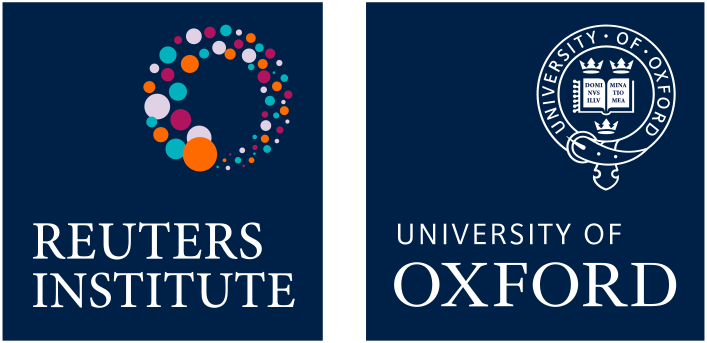
Spain
Spain’s media landscape has been shaped by political pressures, legal disputes, and debates over public service broadcasting. Elections to the European Parliament and regional assemblies have intensified tensions, with both the government and opposition using accusations of disinformation as a political tool. Meanwhile, regulatory changes and government interventions have sparked concerns about press freedom, media independence, and the financial sustainability of news outlets.
Political interference in the media has raised concerns about press freedom in Spain. Both the government and opposition have been accused of pressuring journalists and shaping media narratives. The administration differentiates between those established outlets which it supports and so-called ‘pseudo-media’, which it claims promote far-right interests. Critics argue this framing is used to discredit dissenting voices, both in mainstream press and online platforms, particularly those covering sensitive trials involving the prime minister’s family and other government officials.
As part of its Action Plan for Spanish Democracy, the government has allocated €124.5m in media subsidies, officially to support digitalisation and quality journalism. Authorities argue this funding will help struggling traditional media compete with sensationalist online outlets. Another controversial measure is a proposed mandatory media register, requiring outlets to disclose ownership and advertising revenues. While the government frames this as a transparency initiative, critics warn it could be used to pressure media critical of the administration. Additionally, concerns persist that increasing financial reliance on state funding may compromise editorial independence.
Changes in media ownership have further shaped the industry. At the end of 2024, following a decree law (a fast-track legislative process) approved by the government in October, José Pablo López was appointed as the new president of RTVE, Spain’s public broadcaster. The reform increased the RTVE governing board from 10 to 15 members and lowered the criteria for appointments by the Parliament from a two-thirds majority to a simple majority. It also significantly strengthened the president’s authority while diminishing the board’s role in decision-making. With an annual budget of €1.2bn, 6,500 employees, and losses that would total around €30m in 2024, López introduced a restructuring plan that included creating a central news hub, structural reforms, and a 15% reduction in management roles. However, critics in the media and politics, including opposition parties and some journalists, argue that these changes primarily serve to consolidate government influence over public broadcasting.
One of the most notable shifts in Spanish television has been the rivalry between two very popular talk shows, Pablo Motos’s El Hormiguero and La Resistencia, hosted by David Broncano. The latter recently moved to public broadcaster RTVE, a decision reportedly driven by José Pablo López when he was RTVE’s Director of Content. The government's backing of Broncano’s show, as well as the very favourable terms offered to the show, has sparked speculation that his appointment was part of a broader media strategy. Although La Resistencia initially came close to overtaking El Hormiguero with a 17.1% audience share, Motos’s show has since regained its dominant position in late-night television, maintaining its critical stance towards the government.
Paywalls are a relatively recent development in Spain. In terms of subscription numbers, El País remains dominant with 400,000 subscribers, while El Mundo (163,000), La Vanguardia (145,000), and Expansión (110,000) are the other front-runners. Despite steady growth, much of the subscription increase is driven by promotional offers. In the press sector, significant changes are underway: PRISA’s majority shareholder, Joseph Oughourlian, became Chairman of El País in March 2025 after Carlos Núñez resigned when plans for a new digital terrestrial television channel were rejected. Meanwhile, Vocento, which owns ABC and 18 regional newspapers, recently closed its digital sports outlet Relevo, resulting in around 72 journalists losing their jobs, and reporting losses of €92m.
Artificial intelligence is reshaping the media landscape. According to a survey of 60 Spanish media executives, 57% of news organisations have already incorporated AI tools, while a further 37% plan to do so soon. AI is primarily being used for content generation (68%), data analysis (63%), and automating editorial and production processes (63%) (KPMG 2025).
Finally, despite an increase in advertising investment, concerns remain over the sustainability of traditional media. Challenges include the rapid growth of digital advertising, the dominance of global tech platforms, and changing consumer habits. Spain’s advertising market saw moderate growth in 2024, with total investment rising by 3.8% to €13,080m. Television remained the leading advertising medium (€1,857m, +2.1%), followed by search advertising (€977m, +2.7%) and social media (€856m, +8.5%).1
Aurken Sierra, Roncesvalles Labiano Juangarcía, María Fernanda Novoa-Jaso, and Alfonso Vara Miguel
University of Navarra
Changing media
Declining interest in news affects all sources, with consumption at its lowest since 2015. Meanwhile, 4% use AI chatbots or podcasts for news.
Pay for online news
10%
Trust in news overall
31%
(-2)
=37/48
With disinformation becoming a topic on the political and media agenda and being used as an electoral weapon, media trust has fallen to its lowest level in the past decade (31%), affecting all selected news brands. Local and regional newspapers remain the most trusted by the public (51%), while the public broadcaster RTVE has dropped by 5pp (48%).
RSF World Press Freedom Index
23/180
Score 77.35
Measure of press freedom from NGO Reporters Without Borders based on expert assessment. More at rsf.org
Share news via social, messaging or email
32%
Footnotes
1 Press release. InfoAdex 2025 study. https://infoadex.es/wp-content/uploads/2025/03/Nota-de-Prensa-Estudio_InfoAdex-2025-1-1.pdf

